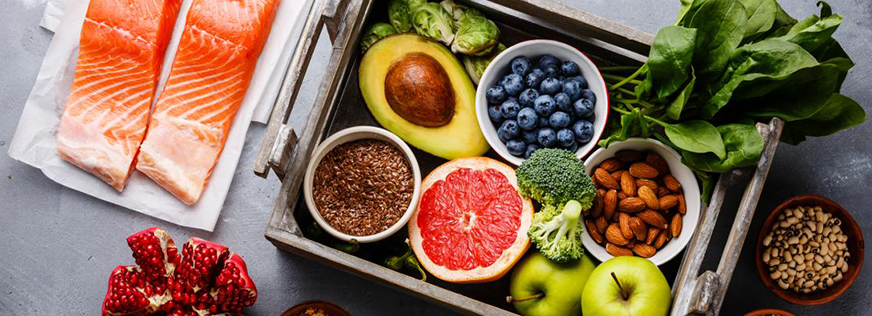
It is vital to have awareness of the most healthful foods to ensure a wide a range of nutrients in the diet.
A balanced diet is the secret to healthful eating. This article will cover the 15 most healthful foods and their benefits.
Nuts, pulses, and grains are all highly nutritious. The following are some of the most healthful:
Almonds provide plenty of nutrients, including
One 2019 meta-analysisTrusted Source found that consuming almonds significantly reduced total cholesterol levels.
Brazil nuts (Bertholletia excelsa) are some of the most healthful nuts available.
They are an excellent sourceTrusted Source of both protein and carbohydrates, and they also provide good amounts of vitamin B-1, vitamin E, magnesium, and zinc.
Brazil nuts also contain more selenium than many other foods. Selenium is a vital mineral for maintaining thyroid functionTrusted Source, and it is a great antioxidant for the human body.
These nuts come in a hard shell and are usually available ready to eat, making them a quick, nutritious snack.
A lentil is a pulse that features prominently in many food cultures around the world, including those of Pakistan, Nepal, Bangladesh, India, Bhutan, and Sri Lanka.
Lentils provide good amountsTrusted Source of fiber, magnesium, and potassium.
They tend to require a long cooking time. However, manufacturers can sprout the seeds, making them a delicious, healthful, ready-to-eat snack.
Adding a container of sprouted lentils to a lunchbox or picnic basket, perhaps with some chili powder or pepper for flavoring, makes for a delicious and healthful snack.
Interest in oatmeal has increased considerably during the past 20 years because of its health benefits.
In 1997, the Food and Drug Administration (FDA) agreed that foods with high levels of rolled oats or oat bran could include data on the label about their cardiovascular health benefits as part of a low fat diet. This led to a surge in oatmeal’s popularity.
Research has found that the cereal’s soluble fiber content helps lower cholesterol levelsTrusted Source and reduce cardiovascular risk factors.
Oats contain complex carbohydrates, as well as water-soluble fiber. These slow down digestion and help stabilize levels of blood glucose. Oatmeal is also a good sourceTrusted Source of folate and potassium.
Wheat germ is the part of wheat that grows into a plant. It is essentially the embryo of a seed. Germ, along with bran, is a byproduct of milling. Refining cereals often removes the germ and bran content.
Whole grain products, however, still contain the germ and bran. This makes them a more healthful choice.
Wheat germ is high in several vital nutrients, including:
Broccoli provides good amountsTrusted Source of fiber, calcium, potassium, folate, and phytonutrients. Phytonutrients are compounds that reduce the risk of developing heart disease, diabetes, and some cancers.
Broccoli also provides essential antioxidants such as vitamin C and beta-carotene. In fact, a single half-cup serving of broccoli can provide around 85%Trusted Source of a person’s daily vitamin C value.
Another compound in broccoli, called sulforaphane, may have anticancer and anti-inflammatory qualities, according to one 2019 study
Broccoli provides good amountsTrusted Source of fiber, calcium, potassium, folate, and phytonutrients. Phytonutrients are compounds that reduce the risk of developing heart disease, diabetes, and some cancers.
Broccoli also provides essential antioxidants such as vitamin C and beta-carotene. In fact, a single half-cup serving of broccoli can provide around 85%Trusted Source of a person’s daily vitamin C value.
Another compound in broccoli, called sulforaphane, may have anticancer and anti-inflammatory qualities, according to one 2019 studyTrusted Source.
Apples are an excellent source of antioxidants, which combat free radicals. Free radicals are damaging substances that the body generates. They cause undesirable changes in the body and may contribute to chronic conditions, as well as the aging process.
However, some studiesTrusted Source have suggested that an antioxidant in apples might extend a person’s life span and reduce the risk of chronic disease.
Kale is a leafy green vegetable that offers a wide range of different nutrients. For example, this powerfully nutritious plant is an excellent sourceTrusted Source of vitamins C and K.
People can cook or steam kale. They can also blend it into smoothies or juices for a nutritional kick.
Blueberries provide substantial amounts of fiber, antioxidants, and phytonutrients. Unlike minerals and vitamins, phytonutrients are not essential for survival. However, they may help prevent disease and maintain vital bodily functions.
In a 2019 reviewTrusted Source of 16 studies, the authors suggest that consuming blueberries may help protect against cognitive decline, which may help reduce the risk of Alzheimer’s disease. They also found that blueberries might help prevent cardiovascular disease.
Another 2019 studyTrusted Source, this time in mice, found that blueberry polyphenols reduced obesity and certain metabolic risk factors. They also improved the composition of gut bacteria.
Some people avoid consuming avocados due to their high fat content. However, avocados provide healthful fatsTrusted Source, as well as B vitamins, vitamin K, and vitamin E. Avocados are also a good source of fiber.
In one 2018 reviewTrusted Source of studies, avocados increased levels of high-density lipoprotein, or “good,” cholesterol. This type of cholesterol removes more harmful cholesterol from the bloodstream.
Avocados might also have anticancer properties. A 2019 test tube studyTrusted Source of avocados showed that colored avocado seed extract reduced the viability of breast, colon, and prostate cancer cells. However, the study did not indicate whether or not the effects would be the same in humans.
Avocados may also have associations with improved nutrient absorption, better overall diet, and fewer metabolic risk factors, according to one 2013 study.